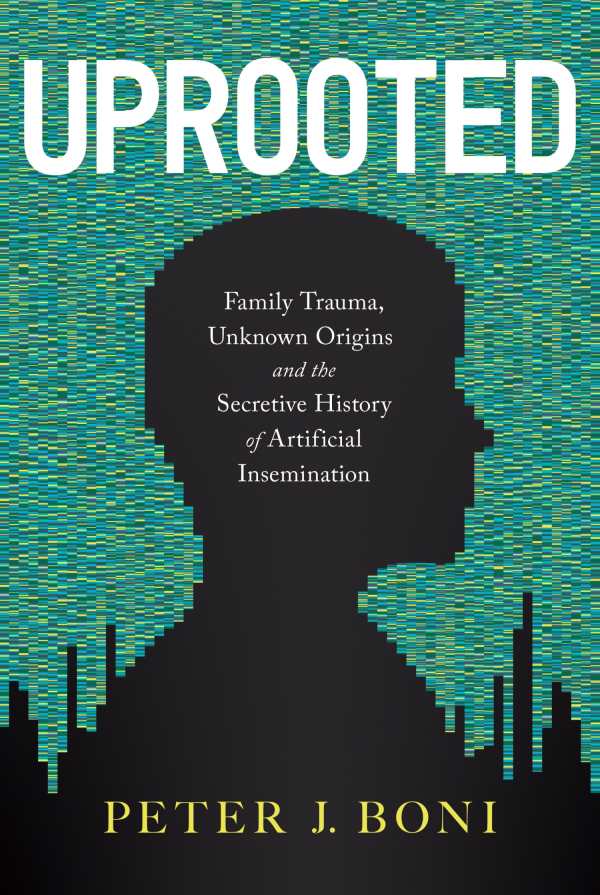Uprooted
Family Trauma, Unknown Origins, and the Secretive History of Artificial Insemination
Uprooted is an uplifting and eye-opening account of searching for the truth about one’s parentage.
Peter J. Boni searches for the origins of artificial insemination and his own genetic heritage in his social science book Uprooted.
When he was forty-nine, Boni, a successful businessman in a strained marriage, learned a shocking family secret: his father was not his biological father, and he was conceived through artificial insemination. This discovery threw his entire self-image out of balance, driving him to investigate where he came from. His research took him in fascinating, surprising directions through the general history of artificial insemination and his own genealogical origins.
The book opens with an intimate account of Boni’s unstable childhood, characterized by continuous poverty and his father’s depression and eventual suicide. While Boni could use his natural intelligence and ingenuity to work his way out of the former, the latter haunted him for decades, especially the possibility that he could inherit his father’s mental illness. Learning that he and his father were not related by blood sparked a flood of complex feelings about his family, himself, and the process of artificial insemination by donor. He soon decided that the best outlet for these feelings was research.
Boni begins by looking into the science of artificial insemination, from the earliest days of selective animal breeding to twentieth-century advances that allowed him and other donor-conceived children to exist. The book is thorough in discussing the scientific advances made since Boni’s own birth. Boni also takes into account evolving social attitudes about human artificial insemination, including the disturbing lack of ethics exhibited by early practitioners.
These factual discussions are punctuated by personal observations: Boni’s research allowed him to bond with his daughter, who was just as eager about the project as he was, and good-natured ribbing from old friends kept him from falling into self-doubt, highlighting the very human feelings and forces that drove Boni’s search. The book includes an enthusiastic breadth of material, shared in lively, informative prose. The mystery of Boni’s parentage, and his quest for answers, demand investment. The book’s third and final part, which chronicles the end of Boni’s long personal quest, is thrilling.
Throughout the book, Boni argues that greater legal oversight and family openness is necessary to protect the physical and mental health of donor-conceived children. His own fraught experiences are proof of the negative effect that such secrets can have. However, despite the challenges, Boni persevered. His inspiring resilience and personal growth make Uprooted as uplifting as it is eye-opening.
Part memoir and part social science history, Uprooted is the engrossing story of a decades-long search for a biological father.
Reviewed by
Eileen Gonzalez
Disclosure: This article is not an endorsement, but a review. The publisher of this book provided free copies of the book and paid a small fee to have their book reviewed by a professional reviewer. Foreword Reviews and Clarion Reviews make no guarantee that the publisher will receive a positive review. Foreword Magazine, Inc. is disclosing this in accordance with the Federal Trade Commission’s 16 CFR, Part 255.

